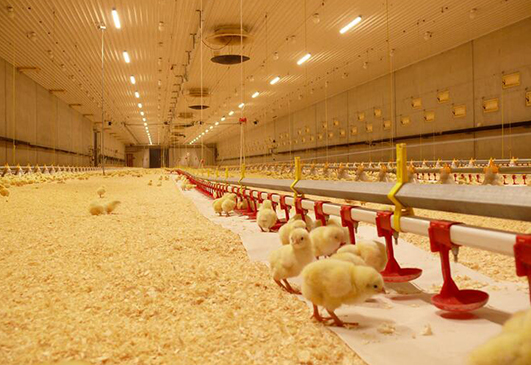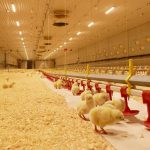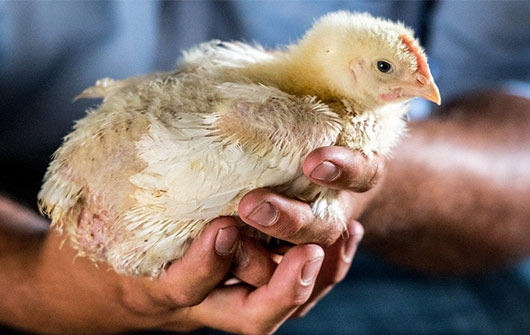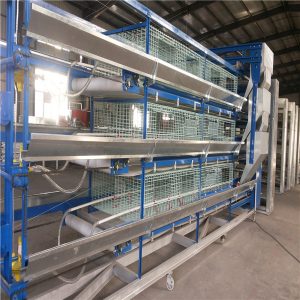1. Disinfection before brooding: Before the chicks enter thebaby chicken cages, the chickens need to thoroughly disinfect the house. Disinfection projects include fumigation in the house, disinfection of drinking water related equipment, and so on.
2. Chicks drink water before they start eating: Chickens should first drink water before they start eating. One-tenth of a million potassium permanganate can be added to the water for disinfection, while helping the chicks clean the stomach and promote meconium discharge. If it is a transported chicken, add about 5% of glucose in the water to help them recover their strength and improve their anti-stress ability.
3. Chick feeding should not be careless: usually, chicks that have broken shells for 24 hours to 36 hours are enough to feed, and chicken farmers are very careful about feeding chicks. First, make sure the feed is fresh and the granules are moderate. Secondly, the food should be cooked as much as possible, and then the chickens should be eaten to help digestion. In addition, the feed for the chicks should be ensured that the nutrients are digestible and the appropriate green and juicy feed can be adjusted.

4. Keeping chicks should pay attention to moderation: the so-called moderate, including temperature, humidity, density and other aspects of moderation. Although the temperature rises in the spring, the temperature is still cold that the chicks cannot accept, so the temperature is very important. Chicks in 7 days of age require a house temperature of 30 ° C to 32 ° C, followed by a decrease of 2 ° C to 3 ° C every 7 days, until the temperature of the house is 21 ° C until the brooding is completed. The humidity of chick houses is usually between 55% and 65%. The breeding density of chicks usually ranges from 25 to 15 per square meter, and chicken farmers can make appropriate adjustments according to actual conditions.
5. Lighting and ventilation are also central tasks for chickens: chicken farmers usually care about lighting and ventilation, but many chicken farmers do not know how to light and ventilate chicks. Normally, chicks within 3 days of age need 24 hours of light, 4 to 14 days of age require 19 hours of light, and after 15 days of age, natural light is available. As for ventilation, it is mainly to deal with the opposition between temperature and ventilation. Chicken farmers should raise the temperature of the house by 1 to 2 degrees before ventilation.
6. The chicks are immune to the disease and are not afraid of the disease: all of the above are done in place, and there is still no guarantee that the chicks will grow up safely. Because the chicks are less sick or even sick, it is necessary to vaccinate the chicks with various vaccines, either in the feed of the chicks or Adding various drugs to drinking water is also indispensable.






